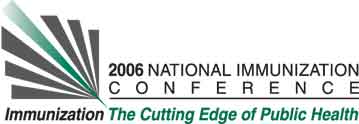Mimi Larzelere1,
Rami Abuhamdeh2,
Pamelia Baggett3, Doug Orr, Lisa Howard, David Blier, and Charles Murff. (1) TN Department of Health, Centers for Disease Control, 425 5th Avenue North, Cordell Hull Bldg. 4th Floor, Nashville, TN, USA, (2) BCS Healthcare, 1950 Old Gallows Road, Suite 201, Vienna, VA, USA, (3) TN Department of Health, 425 5th Avenue North, Cordell Hull Bldg. 4th Floor, Nashville, TN, USA
Learning Objectives for this Presentation:
By the end of the presentation participants will be able to understand:
• how to use an immunization registry to link its data to data from school enrollment systems.
• how to use the immunization registry to automate a previously manual survey process.
Background:
Many of the Tennessee Immunization Program (TIP) activities currently require manual data collection. The school assessment survey is one such activity. TIP has collaborated with the Department of Education to streamline this process by eliminating the initial manual data collection activity.
Setting:
Department of Health Immunization Registry System and Department of Education School Enrollment System
Population:
The State of Tennessee has approximately:
• 136 school districts
• 1700+ schools
• Over one million students
• Approximately 78,000 kindergarten students (focus of current immunization records checks in schools)
Project Description:
These two departments have undertaken a project to: (1) combine and match the data collected by both departments; (2) automate the school survey data collection; and (3) allow the school system personnel to concentrate only on children who need follow-up. We will review:
• Data acquisition
• Matching process and methodology
• Results/statistics from first run
Results/Lessons Learned:
• Decreased school administrator and teacher time spent reviewing/inputting/gathering immunization data, thereby freeing up resources that can be put back into the classroom
• Increased accuracy on school assessments
• Decreased need for parents to fill out forms and make extra trips to physicians' offices to get forms signed (costing time and money)
• Automated process also saves resources in the Department of Health
• Improved service to the community
• More efficient use and conservation of taxpayer dollars
See more of Posters
See more of The 40th National Immunization Conference (NIC)

